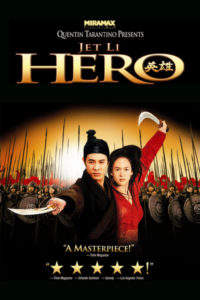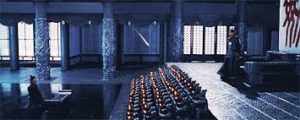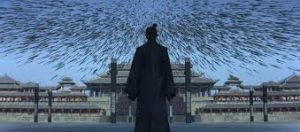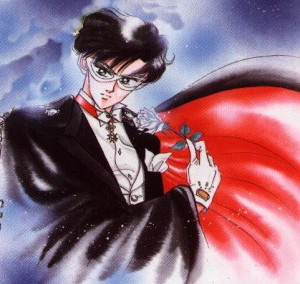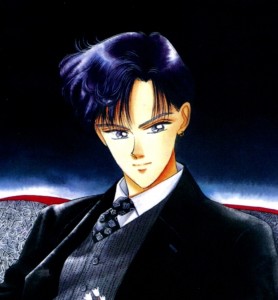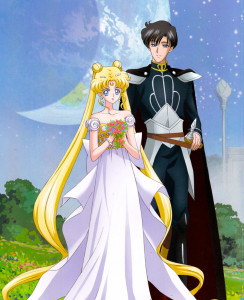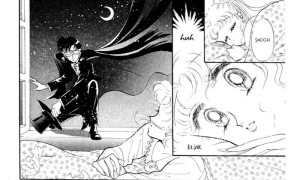Hero is exactly what the title and poster suggests. It’s about a hero and his incredibly difficult quest that will bring joy to the masses. What isn’t depicted here is that there isn’t one hero, but two — each with their own quest.
It took multiple viewings for me to figure this out. At first I was so blown away by the amazing fight sequences and gorgeous scenery. It’s clearly Zhang Yimou’s masterwork. They didn’t spare any expense or effort and the results were worth it. It’s the most stunning piece of cinema I’ve ever seen. Here’s a taste:
The story is told from the hero’s point of view as he recounts to the emperor the events that earned him an audience and the sizable reward for eliminating the emperor’s enemies. Each stage of his journey is shown in a different color and each color has a corresponding emotional theme — red for passion and anger, blue for logic and sadness, green for fear and desperation, black for resolve, and white for hope and mourning. Each stage of the tale bring another level of depth to the story, makes us care about the hero as well as the assassins he brought down. However the emperor knows the assassins well and sees through all this as an elaborate plot to kill him.
Which it is.
This is where it becomes clear that the man we’ve been led to believe is the hero is actually the villain. The real hero is the emperor. The emperor, who is a warmongering self-appointed ruler, deserves the enemies that he’s acquired. However everything he did was for the greater good, not for that generation but for all those to follow. When the hero/now villain realizes this he has a change of heart and despite being given the opportunity to kill the emperor, chooses to spare his life. When he leaves the palace the emperor’s guards execute him.
Death by pincushion. Ouch!
This is why I find this film so fascinating. Only in the East would they think to make the hero a villain, who then redeems themselves in the end by becoming the hero at great sacrifice. The additional twist of making the villain a hero once we’ve learned more about them is a powerful storytelling tool; one that I think is often overlooked. It also provides a deep moral that can be interpreted many ways. It keeps the audience thinking long after the story is over… and lures them back again, and again.
As writers isn’t that what we want to accomplish? To write a story that’s so unexpected and compelling that the readers return to it and discuss it many times? To create something that changes the way they see the world around them?
It’s something to meditate on.
You can find out more about Kim May here.

